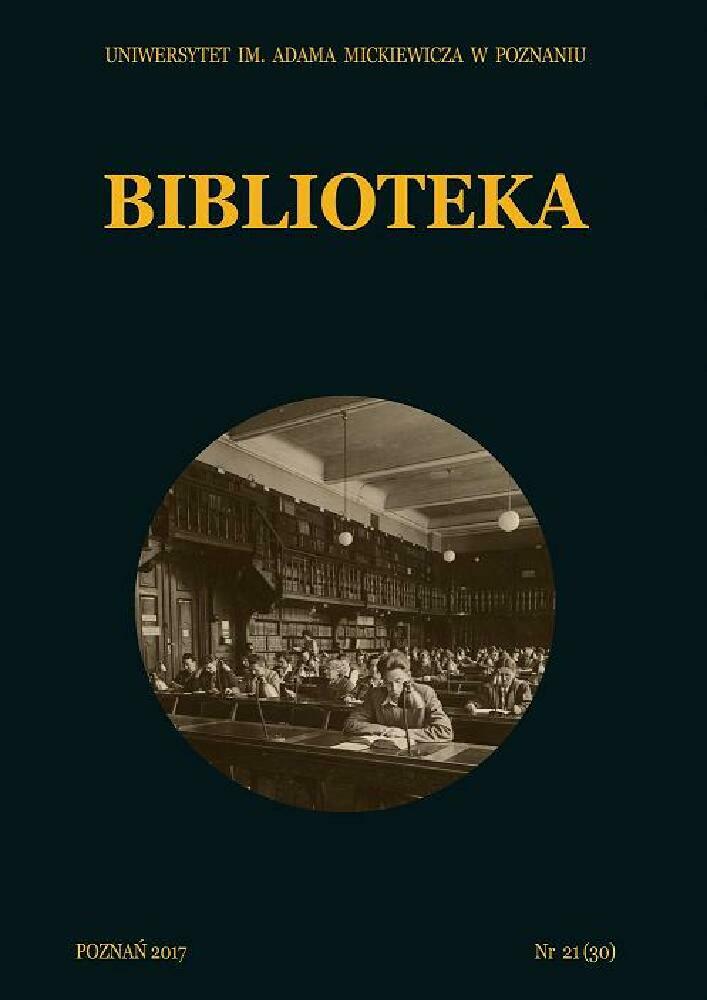Abstract
The author discusses the literary output of Wincenty Różański presenting it as appropriate study material for genetic criticism. Genetic criticism is one of the most interesting approaches to the interpretation of texts and to the reconstruction of creative process. It is a kind of a methodology of examining tangible documents such as writer’s notes, drafts and corrections to help interpret the movement of writing that must be inferred from them and is primarily focused on the genetic analysis of the text, preparation of a genetic dossier and an investigation that is aimed at a reconstruction the stages in the origination of a text in the form of a digital research edition. Genetic critics are then primarily interested in notes and autographs in their penetrative scrutiny, introducing to the research apparatus the notion of the pre-text that is composed of different versions of the text and all notes and amendments of the author that surround the manuscript. All those variants, and not the text itself, that is called the ultimate text, constitute the key to understand the process of creation and the discovery of an alternative history of literature as opposed to the one that has been established solely on the basis of printed output of authors. The Różański Archive, currently held in the collection of the House of Literature at the Municipal Raczynski Library in Poznan, is composed of virtually hundreds of unpublished poems, still in hand-written form, written by the poet. In all, they constitute an excellent material for analysis and, possibly, a prospective genetic edition, a concept of which, in relation to inedits (unpublished materials), has been proposed by the French theoretician Pierre-Marc de Biasi.
References
Antoniuk M., Osoba i przed-tekst, w: Osoba czy tekst?, red. A. Bielak, Lublin 2015, s. 31–63.
Balcerzan E., Biografia jako język, w: Biografia – geografia – kultura literacka, red. J. Ziomek, J. Sławiński, Wrocław 1975, s. 25–40.
Bem P., Dlaczego polskie edytorstwo naukowe nie istnieje, „Teksty Drugie” 2016, nr 1, s. 151–168.
Biasi P.M. de, Genetyka tekstów, przeł. F. Kwiatek, M. Prussak, Warszawa 2015.
Degler J., Piekło edytora, czyli o listach Witkacego do żony, „Przestrzenie Teorii” 2010, t. 14, s. 13–32.
Kruszewski W., Rękopisy i formy. Badanie literatury jako sztuka odnajdywania pytań, Lublin 2010.
Leśniak A., Gorączka archiwum w sztuce współczesnej. Symptomy choroby i propozycja terapii, „Kultura Współczesna” 2011, nr 4, s. 100–107.
Mitosek Z., Od dzieła do rękopisu. O francuskiej krytyce genetycznej, „Pamiętnik Literacki” 1990, nr 4, s. 392–403.
Nalepa M., Setlak W., Syn bogini. Wincenty „Witek” Różański, wyd. 2, Rzeszów 2016.
Spuścizna literacka Wincentego Różańskiego, rkp DL/482–509, w: Katalog rękopisów Ośrodka Dokumentacji Wielkopolskiego Środowiska Literackiego, t. 4, oprac. R. Kurewicz, A. Przybyszewska, Poznań 2016, s. 111–170.
Stachura E., „Ty mój losie niezłomny”. Listy do Wincentego Różańskiego, oprac., przypisy J. Beczek, „Twórczość” 2017, nr 1, s. 62–87.
Troszyński M., Rękopis 4D, „Teksty Drugie” 2014, z. 3, s. 49–56.
License
Copyright (c) 2017 Alicja Przybyszewska

This work is licensed under a Creative Commons Attribution-ShareAlike 4.0 International License.
Utwory opublikowane w czasopiśmie Biblioteka, na platformie Pressto należącej do Uniwersytetu im. Adama Mickiewicza w Poznaniu od 2015 roku są udostępniane na
licencji Creative Commons Uznanie autorstwa-Na tych samych warunkach 4.0 Międzynarodowe.
Tym samym wszyscy zainteresowani są uprawnieni do korzystania z utworów opublikowanych po 2015 roku pod następującymi warunkami:
- uznania autorstwa czyli obowiązek podania wraz z rozpowszechnianym utworem informacji o autorstwie, tytule, źródle (odnośniki do oryginalnego utworu, doi) oraz samej licencji
- na tych samych warunkach — remiksując utwór, przetwarzając go lub tworząc na jego podstawie, należy swoje dzieło rozpowszechniać na tej samej licencji, co oryginał.
Uniwersytet im. Adama Mickiewicza w Poznaniu zachowuje prawo do czasopisma jako całości (układ, forma graficzna, tytuł, projekt okładki, logo itp.).
Autor zachowuje prawa majątkowe, ale udziela zgody Uniwersytetowi im. Adama Mickiewicza w Poznaniu na wykorzystanie dzieła. Autorzy tekstów zakwalifikowanych do publikacji proszeni są o wypełnienie podpisanie i przesłanie umowy.
Jeżeli autor artykułu nie jest przekonany, że może wykorzystywać cudze utwory (np. ilustracje, fotografie, tabele) w ramach cytatu we własnej tekście musi dostarczyć do redakcji czasopisma zgodę od uprawnionych podmiotów.
Prawa są zastrzeżone do wszystkich tekstów opublikowanych przed rokiem 2015.





